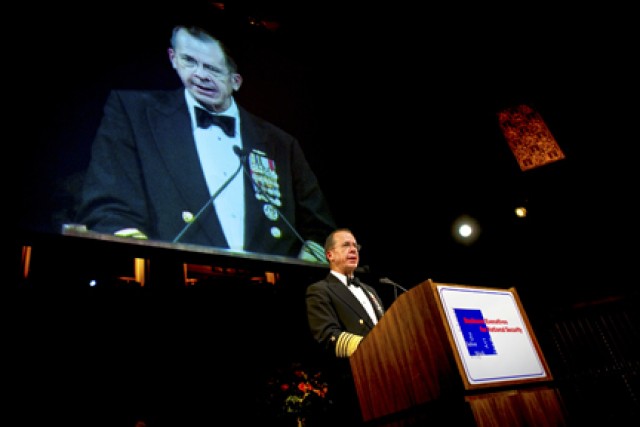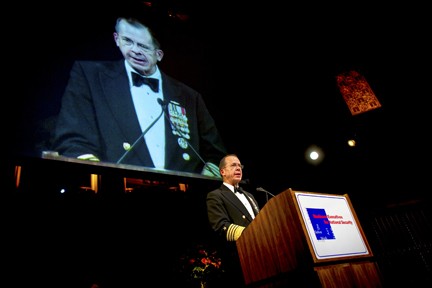WASHINGTON, Nov. 2, 2010 - The nation has not begun to comprehend the long-term consequences of protracted war, the military's top officer said yesterday.
"The human toll - the fear, the stigma, and the hard work of recovery ahead for our troops and their families - these are the real costs of war," he said.
Navy Adm. Mike Mullen, chairman of the Joint Chiefs of Staff, spoke at a Business Executives for National Security dinner in New York honoring David and Mary Boies with the organization's Eisenhower Award.
He said the Boieses and other BENS members' efforts demonstrate their passion to give back to the country.
"National security is not just the purview of the military or the government," Mullen said. "But ... I think for many of our fellow citizens, the military remains an abstraction."
While it's clear Americans love and support the nation's troops and their families, he said, "My fear is that we're losing touch."
Servicemembers and their families commonly have endured five yearlong or up to 25 shorter deployments since 2003, he said.
"From the everyday sacrifices of missed birthdays, soccer games and special moments each family cherishes, to the physical and psychological repercussions attached to the post-combat experience, these are lives forever changed," Mullen said.
"Long and frequent absences are testing their resilience," he added. "They want to know, 'How many deployments can a marriage take''"
Veterans struggle with the combined stress of combat missions, family separations and eventual reintegration into civilian life, Mullen said.
"Military families live in a war zone of their own," he said. "The pressure to try to bear up with a stiff upper lip is driving some to leave the service or - most tragically - to leave this life."
He said many veterans have a hard time translating military experience into viable jobs, particularly in a burdened economy.
Transition challenges, post-traumatic stress, strain on families, health care demands, rising homelessness among veterans, and the silent epidemic of suicide all paint a stark forecast, the chairman said.
"There must be a sense of urgency here," Mullen told the audience. "The sooner we empower our veterans and their families through these transitions, the less likely they will spiral downward."


Social Sharing